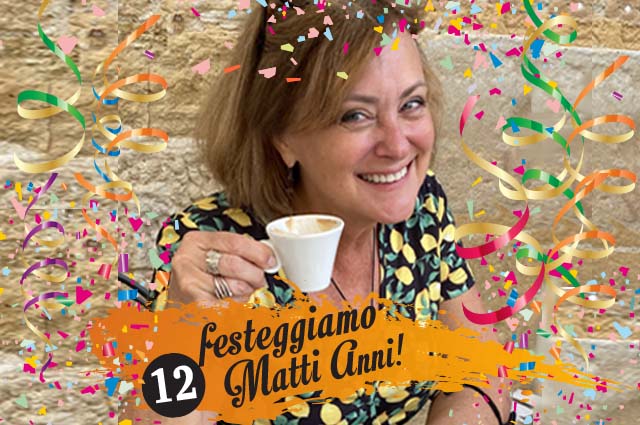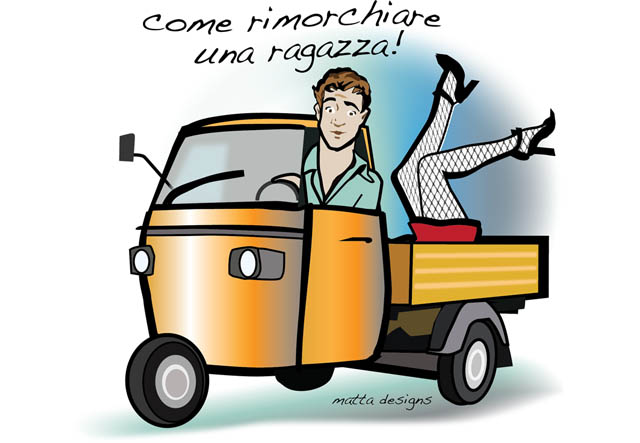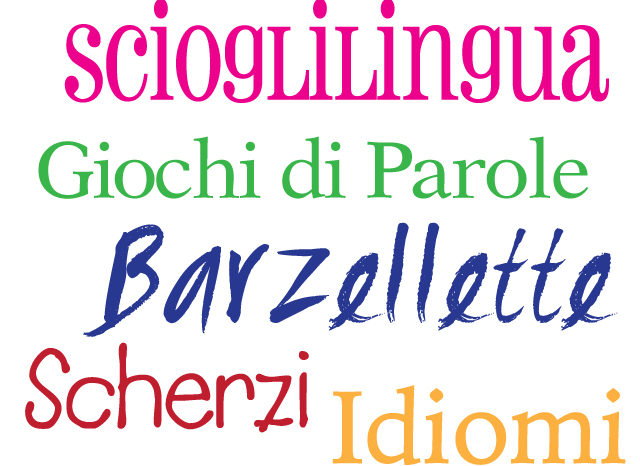
Facciamo due risate? Come scherzare e divertirsi in italiano!
Let’s Have a Laugh! How to Joke and Have Fun in Italian!
La Matta Parla delle Barzellette
Listen to the Podcast of this Youtube Video
Non sto scherzando!
I’m Not Joking!
Ridere è una delle cose più belle della vita, e fare battute è un modo meraviglioso per connettersi con gli altri. Ma a volte, quando diciamo qualcosa di incredibile, dobbiamo subito chiarire: “Non sto scherzando!” Questo è uno di quei momenti!
Laughing is one of the greatest joys in life, and joking around is a wonderful way to connect with others. But sometimes, when we say something unbelievable, we have to quickly clarify: “I’m not joking!” This is one of those moments!
Non sto scherzando: ho avuto l’occasione incredibile di incontrare Sophia Loren di persona! Davvero! Non sto tirando uno scherzo, né sto prendendo nessuno in giro. È tutto vero!
I’m not joking: I recently had the incredible opportunity to meet Sophia Loren in person! Really! I’m not pulling a prank or pulling anyone’s leg. It’s all true!
Impariamo più di scherzi e scioglilingua
Let’s Learn More about Jokes and Tongue Twisters
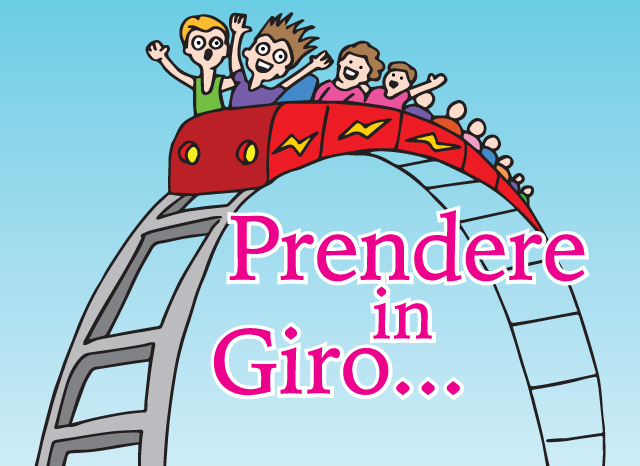
To say “I’m joking” in Italian you say “sto scherzando”
Non ti preoccupare, ti sto solo prendendo in giro!
Don’t worry, I’m just kidding!
È uno scherzo, non fare quella faccia!
It’s a joke, don’t make that face!
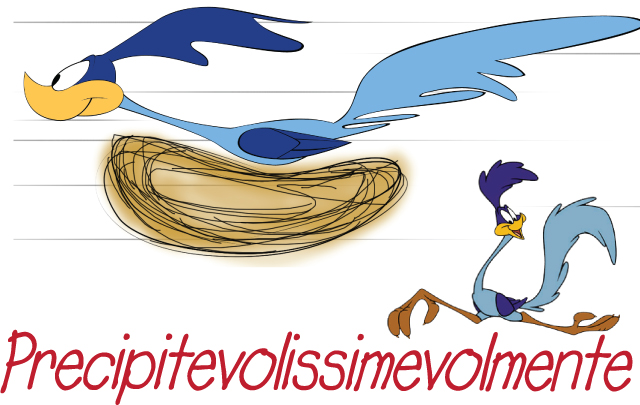
Scioglilingua—Allenati a parlare come un vero italiano!
Tongue Twisters—Train to Speak Like a Real Italian!
Gli Scioglilingua sono quelle difficili parole scivolose che suonano molto simili.Il trucco o gioco è dire le parole molto velocemente . La pratica rende gli scioglilingua più scorrevoli e lisci.
Le Scioglilingua are those tricky slippery tongue twisters…or words that sound very similar. The trick is to say them very fast, Practice makes perfect. By repeating the tongue twisters over and over again they become smoother and roll faster of the tongue.
Tre tigri contro tre tigri.
Don’t worry, I’m just kidding!
Trentatré trentini entrarono a Trento, tutti e trentatré trotterellando
Thirty-three people from Trentino entered Trento, all thirty-three trotting along
Una parola difficile da pronunciare?
Precipitevolissimevolmente!
Che significa? Fare qualcosa super velocemente!
To do something super fast!
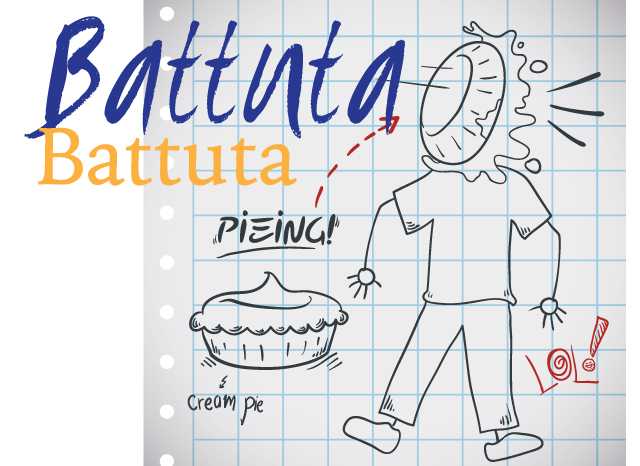
Barzellette e battute semplici ma divertenti
Simple but Funny Jokes
La parola “battuta” significa “beat” o “hit” in inglese, in italiano letteralmente un “colpo”. Ma nel senso di un gioco significa “punch line of a joke”. Potrebbe anche significare la frase che un attore deve imparare a memoria per un ruolo in un dramma o in uno spettacolo.
The word “battuta” means “to hit” in the sense of a “punch line of a joke. It can also mean the lines an actor needs to learn by heart for a role in a play.
Cosa fa un gallo in mare? Galleggia!
What does a rooster do in the sea? It floats!
Adoro Halloween… ora tutte le ragnatele in casa mia sono considerate “decorazioni!”
I love Halloween… now all the cobwebs in my house are considered “decorations!”
Apri l’elenco telefonico e trova un numero a caso. Chiama e aspetta che qualcuno risponda. Poi chiedi: “Il tuo frigorifero funziona?” Quando rispondono di sì, dici: “Allora che aspetti… corri a prenderlo!”
Open the phone book and pick a random number. Call and wait for someone to answer. Then ask: “Is your refrigerator running?” When they answer yes, you say: “What are you waiting for…you better go and catch it!”
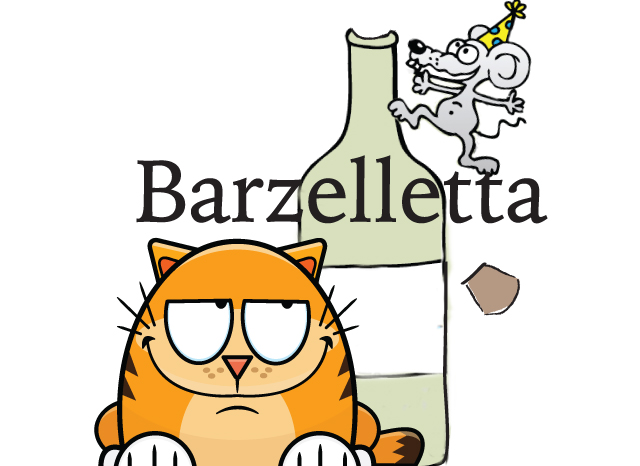
Una barzelletta può anche essere una piccola storia con un finale divertente.
A barzelletta in Italian could also be a little story with a cute twist.
Un topolino si trovava in una cantina di vini. Assetato, stappò una bottiglia e cercò di bere, ma cadde dentro. Chiamò aiuto a un gatto che passava, dicendo: “Preferisco essere mangiato da te piuttosto che annegare nel vino!”
A little mouse was in a wine cellar. Being thirsty, it uncorked a bottle of wine and tried to take a drink, but it fell inside the bottle. It cried out to a passing cat for help, saying, “I’d rather be eaten by you than drowned in wine!”
Il gatto, felice, rovesciò la bottiglia per liberare il topo. Ma appena fuori, il topolino scappò rapidamente nella sua tana. Il gatto, infuriato, gridò al topo: “Hai detto che potevo mangiarti se ti avessi liberato!”
Il topo, sorridendo, rispose: “Signor Gatto, tutti facciamo promesse sciocche quando siamo ubriachi!”
The cat, happy to oblige, turned the bottle over and freed the mouse. But as soon as it was out, the mouse quickly scampered away into its den. The cat, quite upset, called out to the mouse: “You said I could eat you if I freed you!”
Il topo, sorridendo, rispose: “Signor Gatto, tutti facciamo promesse sciocche quando siamo ubriachi!”
The mouse simply grinned and replied: “Signor Gatto, we all make silly promises when we’re drunk!”
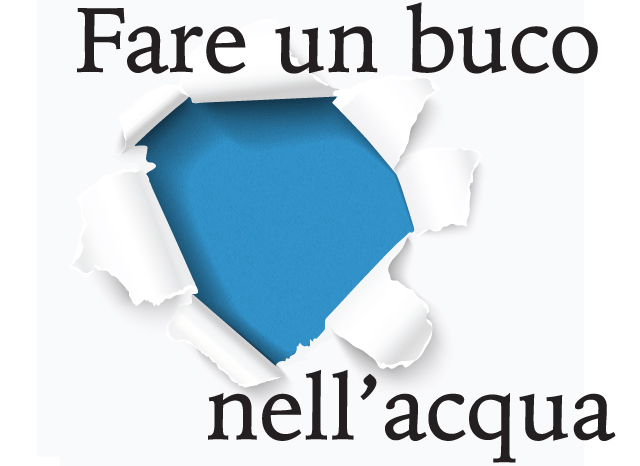
Un modo di dire è un’espressione popolare
usata da un gruppo di persone.
An idiom is a popular expression used by a certain group of people.
Ecco un esempio di modo di dire: “Un buco nell’acqua.” Che cosa significa? In Italia vuol dire fallire in qualcosa.
Here’s an example of an idiom: “A hole in the water.” What does this mean? In Italy, it means to fail at something.
Pensavo che tutto sarebbe andato bene, ma invece ho fatto un buco nell’acqua!
I thought things would go well, but instead I made a hole in the water!
Hai voluto la bicicletta? Adesso pedala!
You made your bed, now lie in it!


